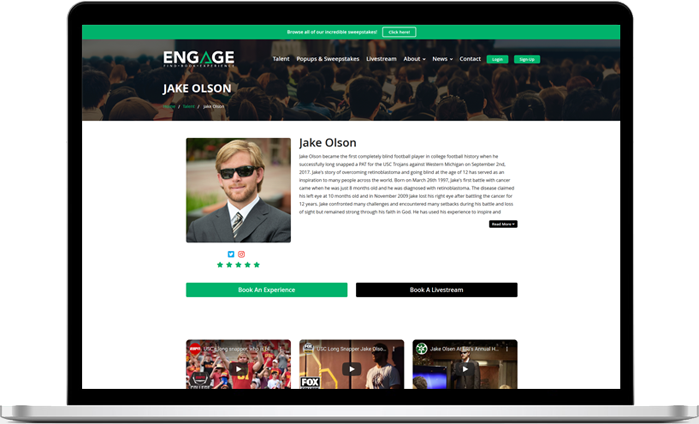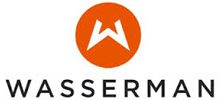Harry G. Broadman is a globally renowned international finance executive, private equity investor, trade negotiator, and authority on business growth, risk-mitigation, corporate governance and innovation. Throughout his 35+ year career he's re-invented himself more than a handful of times—not only in an interdisciplinary fashion, but also across greatly differentiated senior roles in the private sector, interspersed with stints as a high-level public official, professor and journalist.
Soon after receiving his doctorate in economics in his mid-20s, he emerged as a thought-leader on the unforeseen dynamics that have changed the underlying structure and character of world markets long before the term "globalization" was commonplace. These insights shaped Broadman’s focus on operational strategies that propel firms' competitiveness, especially in emerging markets, the parts of the world toward which he has always had a strong predisposition. He has worked in more than 80 such countries across 5 continents, including throughout China, India and much of the rest of Asia; most of Latin America; Russia and almost every other Former Soviet Union state; the Balkans and Turkey; much of Africa; and parts of the Middle East.
A strategic advisor to C-suites and boards, Broadman has counseled companies and investment institutions as diverse as IBM, GE, Coca-Cola, Canon, Exxon-Mobil, Valmet, Johns Manville, Corning, Heineken, Emerging Capital Partners, Temasek, Australia Future Fund, Pepsi, Merck, Walmart, Deere, Mars, Avon, Intel, McCormick, Aditya Birla, Kuwait Investment Authority, Apollo, 57 Stars, ICANN, McCormick, SunEdison, ITW, Westinghouse, Siemens, Standard Chartered, Microsoft, Weatherford, Canadian Pension Investment Board, Abraaj, Blackstone, PPG, Heineken, Tyco, Caterpillar, Hilton, Dow, Manitowoc, Berkshire Hathaway, Carlyle, ADIA, Mahindra, and TPG.
As a keynote speaker, Harry brings to audiences a unique combination of both fundamentally insightful as well as pragmatic views about how commercial, financial, and policy changes driving international markets are altering enterprises' opportunity-risk tradeoffs in ways few ever could have predicted or understood. Rather than using a rear-view mirror approach, he entices listeners to think through a prospective prism to frame critical business decision-making opportunities and challenges they will likely face. He draws out lessons punctuated by the ways markets intrinsically tend to operate in 'non-linear' patterns.
In addition to leaving audiences with concrete, practical takeaways—he often gets comments such as “unlike other speakers, you’re compelling because it’s clear you know firsthand what’s really ‘going down’ and what to do”—his speeches are also entertaining and infused with his infectious sense of humor.
Broadman has been interviewed numerous times on television and radio and been widely quoted in the electronic/print media, including The New York Times, The Wall Street Journal, The Financial Times, BBC, CNN, NPR, CNBC, CCTV, Fortune, CBC, The People’s Daily, Time, Kommersant, Australia Broadcasting Corporation, Business Africa, El Pais, Le Monde, Nihon Keizai Shinbun, and The Washington Post.
Presently, Harry is a Partner and Chair of the Emerging Markets Practice at the Berkeley Research Group LLC, a global litigation expert witness and business strategy consulting firm. His practice focuses on complex international trade and investment disputes and arbitration; antitrust and regulatory cases; corporate governance and corruption investigations and compliance; and matters before the Committee on Foreign Investment in the US (CFIUS).
Concurrently, he is a faculty member at Johns Hopkins University; a monthly columnist for Forbes, Newsweek, and Gulf News; and engaged by the National Association of Corporate Directors (NACD) as a Master Workshop Faculty Member. He serves or has recently served on the Boards of Directors or Advisors of: ArmorText, a cybersecurity intra-enterprise communications software firm; Strategic Ratings, a UK-based credit ratings agency; PartnersGlobal, an international alternative dispute resolution (ADR) entity operating in 22 countries; The Lake Tanganyika Floating Health Clinic, a healthcare and telecom services provider across 4 African countries; The Global Business School Network; The Russian-American Chamber of Commerce; and The Corporate Council on Africa. He is an NACD Board Leadership Fellow.
In 2015, Broadman stepped down from PricewaterhouseCoopers (PwC), where he founded and led PwC's Global Business Growth Strategy Management Consulting Practice and also served as PwC's Chief Economist. Before joining PwC, he was Managing Director and a member of the Investment Committee at Albright Capital Management, an international private equity and alternative strategy investment fund chaired by Madeleine Albright. He was also Managing Director of The Albright Group (now Albright Stonebridge), a business diplomacy consultancy.
Before that, Harry was a senior official at the World Bank, where he oversaw the Bank's largest sovereign finance operations and enterprise restructuring investments, as well as advisory programs on trade and investment policy, corporate governance, and antitrust and regulation in China; Russia and the Former Soviet Union states; and the Balkans. He also served as Economic Advisor for the entire Africa Region.
Earlier, Broadman worked in the White House as Chief of Staff of the President's Council of Economic Advisers during the first Gulf War and the Savings and Loan Crisis. He was then appointed as United States Assistant Trade Representative. In this position, he led the U.S. negotiations on international trade and investment across all services industries as part of the establishment of both NAFTA and the WTO. He also managed all negotiations of U.S. Bilateral Investment Treaties (BITs) with other sovereigns. He was a Board Member of the Overseas Private Investment Corporation (OPIC) and served on CFIUS, which assesses national security impacts of inbound investment. Broadman came to the Executive Branch after serving as a Senior Professional Staff Member of the U.S. Senate Committee on Governmental Affairs, then chaired by John Glenn, during which time Harry was a core drafter of the Omnibus Trade and Competitiveness Act of 1988.
Before his government service, Harry was on the Harvard University faculty; staff member at the RAND Corporation; Assistant Director, Center for Energy Policy at Resources for the Future, Inc.; and fellow at the Brookings Institution.
He has authored several books and numerous professional articles published in a wide array of peer-reviewed finance, economics, law, and foreign policy journals. His most recent books are: Africa's Silk Road: China and India's New Economic Frontier; From Disintegration to Reintegration: Russia and the Former Soviet Union in the Global Economy; and The State As Shareholder: China's Management of Enterprise Assets. Broadman is a lifetime member of the Council on Foreign Relations and a member of The Bretton Woods Committee. He received an A.B. in economics and history, magna cum laude, from Brown University, where he was elected to Phi Beta Kappa, and an A.M. and Ph.D. in economics from the University of Michigan.


























































